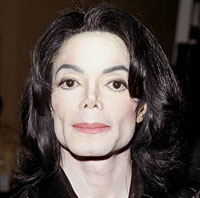 Valentine’s Day 2001 I spent with Michael Jackson and 3,000 of his most adoring fans.
Valentine’s Day 2001 I spent with Michael Jackson and 3,000 of his most adoring fans.
At the time the “King of Pop” and Rabbi Shmuley Boteach had started an initiative
called “Heal the Kids” which aimed to “restore children’s ‘birthright of nurturing care’.” That evening the two were hosting a panel discussion on how parents could best balance care of their children with demands of their careers and relationships and Beliefnet was there to cover it.
Like many Americans, my relationship with Mr. Jackson was a bit schizophrenic: Adoring his musical genius one minute and guffawing along to all the late night hosts’ jokes about his legal troubles or commenting on his freakish plastic surgery-aided transformation the next. But that night, I witnessed almost 3,000 crazed fans rushing the stage, trying anything to get a piece of the superstar and I realized that, even with all of the troubles that he may have brought upon himself, he never really stood a chance.
Men and women of every age and race sprinted to that stage, screaming like banshees, throwing tokens of affection at a grown man who stood at the podium giggling nervously, repeating “I love you, too” in a quiet voice while body guards pelted people away. This was Michael Jackson’s life and it was pretty much the only life he had ever known. Ping-ponging between the frighteningly overzealous, yet anonymously generic, adoration of his fans and the alleged childhood abuse he suffered at the hands of his father, the pop superstar never had a chance to develop emotionally, to become an adult, to be normal. Celebrity never looked so unappealing and dysfunctional.
That was the day I stopped laughing at the late night hosts’ jokes and just learned to love the music and not the mayhem surrounding it.

